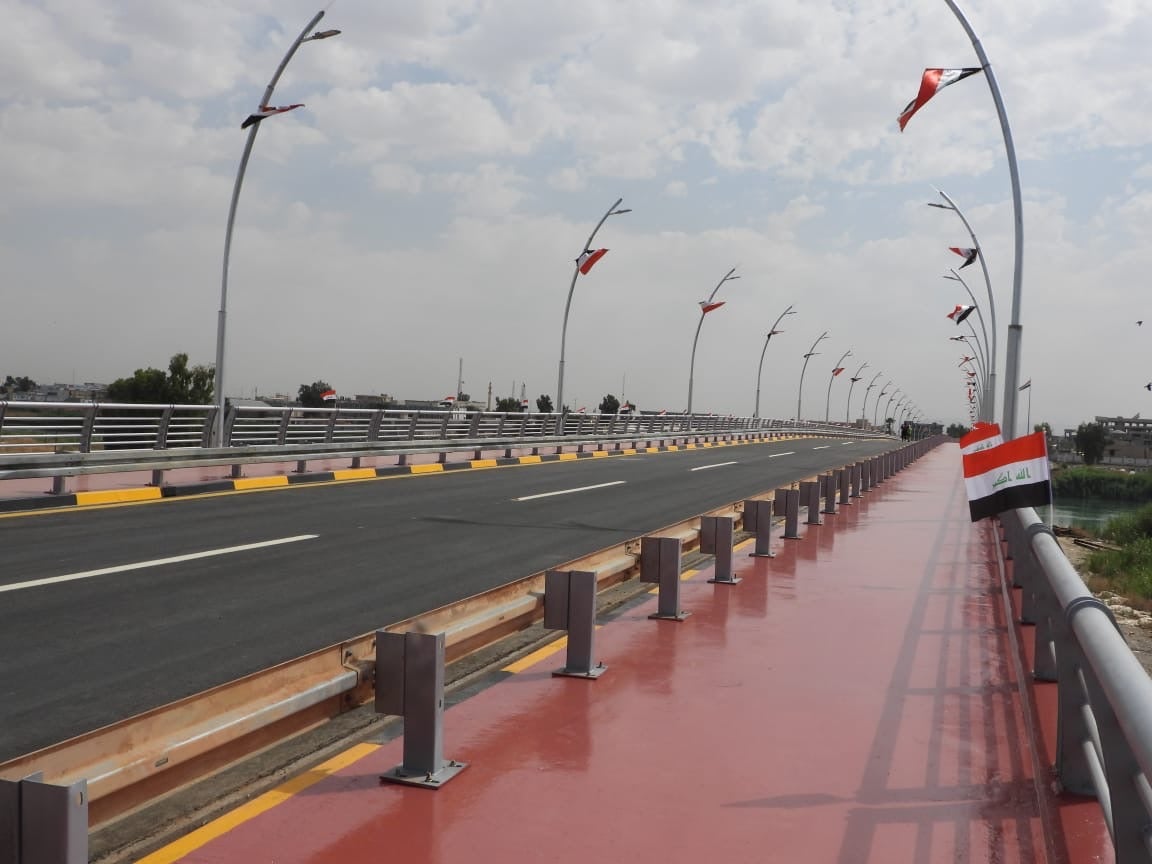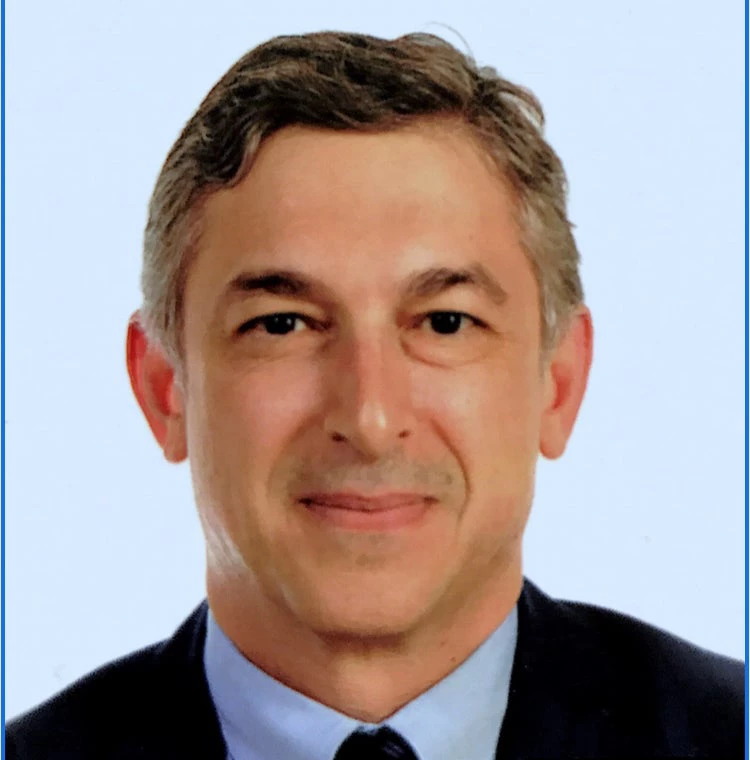 جسر "الحرية" في الموصل الذي افتتح في يونيو 2020. تصوير: ماهر ابراهيم، مديرية الطرق والجسور العراقية
جسر "الحرية" في الموصل الذي افتتح في يونيو 2020. تصوير: ماهر ابراهيم، مديرية الطرق والجسور العراقية
Om Emad is an Iraqi entrepreneur who started Widows Food, a small food delivery venture in Mosul, one of Iraq’s biggest cities. Starting with two women employees, it has grown to employ 30 women. Ola Laith, 30, is another entrepreneur whose team is currently producing handmade masks to help meet demand spurred by the coronavirus (COVID-19). She had returned from Turkey after Mosul’s liberation from ISIS and heads a nongovernmental organization.
But these promising businesses faced a big problem: the destruction of several important bridges in the 2016 conflict with ISIS. This limited connectivity between the east and west of Mosul, a city of 4 million, and hindered the sourcing of materials for the entrepreneurs’ businesses as well as distribution of their finished products.
On June 10, 2020, Mosul celebrated the opening of Al-Hurriyya or “Freedom” Bridge, which was reconstructed with financing from the World Bank. Its reopening will change the lives of many people like Ola and Om Emad, with a daily impact on nearly a third of Mosul’s citizens.
The World Bank’s US$750 million Emergency for Development Project (EODP) has so far rebuilt three vital bridges across the Tigris river and helped bring economic life back to Mosul. The project has also rehabilitated more than 400 kilometers of roads and 25 other bridges in Mosul and elsewhere in Iraq, with more projects currently under implementation.
Photo still of Om Emad captured from a video produced by Suker Maen Al-Zakaria/Iraq.
So how did the World Bank project achieve these successes in reconstruction despite the fragile and conflict-affected setting in Iraq? It wasn’t easy. Since 2015, many parts of Iraq have endured various levels of insecurity. Sadly, contractors working on the EODP have faced serious risks to their own safety and destruction of key equipment. Military checkpoints and curfews add to the challenges of project implementation. World Bank experts working in Iraq and overseeing project implementation also face a variety of challenges, including risks to personal safety.
In recent months, the projects have faced the added challenge of the coronavirus pandemic, which brought many activities to a halt. Due to quarantine and people being restricted to their homes, it became extremely difficult for our staff to monitor what was happening on the ground and the progress of projects.
This is where citizen engagement and the participation of Iraqi citizens truly came into play, along with some innovation on the part of the Bank. Two main approaches have made a critical difference.
1) To foster transparency around the project, we came up with an outside- the-box monitoring mechanism. The project team reached out to local youth groups living in project areas and sought their feedback on implementation progress.
With help from the Reconstruction Fund for Areas Affected by Terroristic Operations (REFAATO), WhatsApp groups have been established in each governorate. These groups have communicated priority needs of their communities and provided feedback on implementation progress for infrastructure. The photos below by Ali Mansour Al-Khayat, from Diyala, are an example of the progress he photographed and shared via WhatsApp.
Such photos and video clips gave good feedback on an important project that could mean so much to many people in Iraq. This sort of partnership with youth groups encourages ownership and commitment to work for a more secure and prosperous Iraq.
Photos: Ali Mansour Al-Khayat, photographed and shared as a member of the Diyala WhatsApp group.
2) Through innovation and flexibility in implementation, we were able to continue project work during the coronavirus. The World Bank team arranged for multiple sources of credible feedback about progress on the ground, such as a bi-weekly video conference between the Bank and the government’s team. A site engineer prepares monthly progress reports, while a consultant hired by the Bank visits the site and reports back. The government also has a technical auditor who reviews and verifies project implementation.
We are soon starting work on two other key bridges for reconstruction, including a major bridge on the route between Mosul and Duhok that is important for trading with Turkey. As we continue our work despite the challenges on the ground, one thing is certain: in economic development, there is little that is easy. This is why adopting new methods for citizen engagement and participation –using technology as an enabler (as seen in the WhatsApp groups), being flexible in project design, and innovating in implementation arrangements – can make a lot achievable.
In addition to rebuilding infrastructure, the EODP has helped create much-needed jobs and reinstated access to services, markets, clinics, schools, and universities. Thousands of displaced families have been able to return home, and the reopened bridges are reducing people’s suffering, giving hope for a better future. Improving people’s opportunities is at the heart of what we do at the World Bank.






Join the Conversation